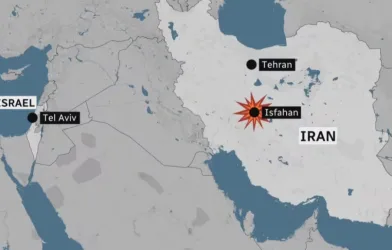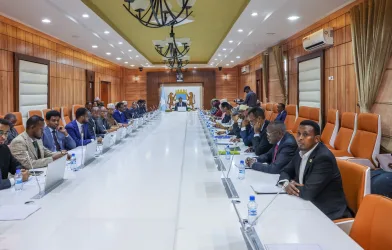
The livestock and fishing sectors of Somalia have been seriously impacted by the ongoing war in neighbouring Yemen.
Yemen might be the poorest country in the Middle East, but it has great strategic importance for its neighbours. The country sits on the Bab al-Mandab Strait, a waterway linking the Red Sea with the Gulf of Aden, through which much of the world’s oil shipments pass (Including Saudi Arabia’s).
Every year, Millions of animals are exported through the ports of Berbera in Somaliland and Bossaso in Puntland. Both have established relative stability compared to the two decades of civil war that has ravaged southern and central Somalia. But since the conflict erupted in March, exportation of livestock has been halted.
Livestock is the mainstay of the Somali economy, contributing 40 percent to the country’s Gross Domestic Product (GDP).
Traders in the northern port town of Berbera – administered by the self-declared independent nation of Somaliland – have said that several ships packed with animals sent to Yemen recently were forced to come back.
‘’There was no place to sell them and all the markets have been closed due to the war…. They were forced to come back here and it is a loss to our market,’’ says Awad Suleiman, a businessman in Berbera.
Approximately $250 million is generated from the export of goats, sheep and camels to the Gulf countries annually. In a report released weeks ago by the Food and Agricultural organization (FAO), Somalia recorded one of its highest exports of livestock in a single year since the collapse of the central government in 1991 by transporting 5 million livestock to markets in the Gulf of Arabia.
‘’ Yemen was a vital market for our business…. It used to also link our business to the other Gulf countries. Our business is now facing jeopardy and we don’t know where it will end up,’’ says another businessman in Bossaso port.
Fishing Sector
 The most immediate impact of the current violence in Yemen is on the civilian population, as the Saudi-led bombing campaign claims civilian lives, destroys infrastructure, and disrupts markets. But indirect and long-term impacts on fishing communities, both in Yemen and Somalia, could be substantial as well.
The most immediate impact of the current violence in Yemen is on the civilian population, as the Saudi-led bombing campaign claims civilian lives, destroys infrastructure, and disrupts markets. But indirect and long-term impacts on fishing communities, both in Yemen and Somalia, could be substantial as well.
According to fishermen, boats coming from Yemen to export fish from Puntland have dramatically dropped to almost zero ever since the Saudi-led campaign blocked the ports to stop the Iranian warships to supply arms to the Houthi rebels.
One fisherman said that there have been massive declines in profits from the export of fish since the conflict emerged. One of the factors is the fall down of fish prices.
‘’ We used to export most of the daily catches to Yemen and for more than a month it has stopped…. Most of the fishermen are now hopeless and battling to find markets,’’ says Abdi Yariisow, one fisherman in Bossaso.
However, the unfortunate Somali Fishermen are now facing a new challenge which they don’t know when it will end. In the past years, they have been victims of the illegal and unregulated fishing and piracy.
Realistically, the continuation of Yemen conflict will have more impacts which will affect its neighbours which some of them are already struggling to cope with the influx of refugees.
Hussein Farah
Horseed Media







